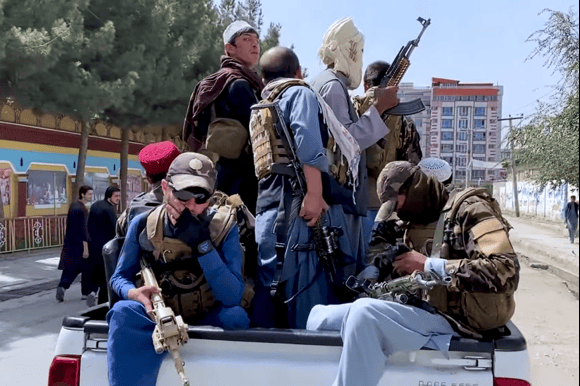Russia has officially become the first country to formally recognise the Taliban government in Afghanistan, a move that has triggered widespread condemnation from Afghan opposition figures and international human rights advocates.
The decision is seen as a significant turning point for the Taliban, nearly four years after they seized power in Kabul in 2021. Since then, most nations have refrained from granting the group diplomatic recognition, citing its hardline interpretation of Sharia law and sweeping restrictions on women’s rights.
In a statement following Russia’s announcement on Thursday, Afghan Foreign Minister Amir Khan Muttaqi expressed hope that Moscow’s recognition would set a precedent for other countries. “This is a new phase of positive relations, mutual respect, and constructive engagement,” he said, calling Russia’s decision “courageous.”
However, the move has sparked criticism from Afghan exiles and women’s rights activists. Former Afghan politician Fawzia Koofi warned, “Any move by any country to normalise relations with the Taliban will not bring peace—it will legitimise impunity.” She added that such recognition “risks endangering not just the people of Afghanistan, but global security.”
The Afghan Women’s Political Participation Network also condemned Russia’s decision, stating that it grants legitimacy to “a regime that is authoritarian, anti-women, and actively dismantling basic civil rights.” In a strongly worded statement, the group warned that the move amounted to political interference and was reminiscent of past destructive strategies employed by Moscow.
Despite Taliban claims that they respect women’s rights in accordance with Islamic law and Afghan culture, the group has imposed numerous restrictions since 2021. Girls over the age of 12 have been banned from attending school, women have been barred from most jobs, and strict rules have been enforced regarding travel without a male chaperone. In addition, women have been prohibited from raising their voices in public spaces.
The Russian Foreign Ministry, meanwhile, highlighted the potential benefits of economic cooperation with Afghanistan, citing opportunities in energy, transport, agriculture, and infrastructure. It also affirmed Russia’s commitment to helping the Taliban-led government combat terrorism and drug trafficking.
Notably, Russia was among a handful of countries that kept its embassy open in Kabul after the Taliban took over in 2021. The Kremlin was also the first to sign a formal economic agreement with the Taliban in 2022, securing supplies of oil, gas, and wheat for Afghanistan.
In April this year, Russia officially removed the Taliban from its list of terrorist organisations. Russian President Vladimir Putin had already referred to the Taliban as an “ally” in the fight against terrorism in July 2024, and Taliban representatives had been meeting with Russian officials in Moscow since at least 2018.
Yet, the relationship between the two countries is historically fraught. In 1979, the Soviet Union—of which Russia was the central power—invaded Afghanistan and fought a brutal nine-year war, resulting in over 15,000 Soviet casualties. The attempt to install a pro-Soviet government in Kabul was internationally condemned and ultimately led to the Soviets’ withdrawal in February 1989.
The Afghan Women’s Political Participation Network recalled this history in its criticism of the latest development, stating, “We have not forgotten Russia’s role in the destruction of Afghanistan during the Soviet invasion. Today, its political interference and direct support for the Taliban represent a continuation of those same destructive strategies, now under the banner of diplomacy.”
As Moscow takes the lead in normalising diplomatic ties with the Taliban, the move is likely to intensify global debates over how to engage with the regime and the implications for human rights, regional stability, and international security.






